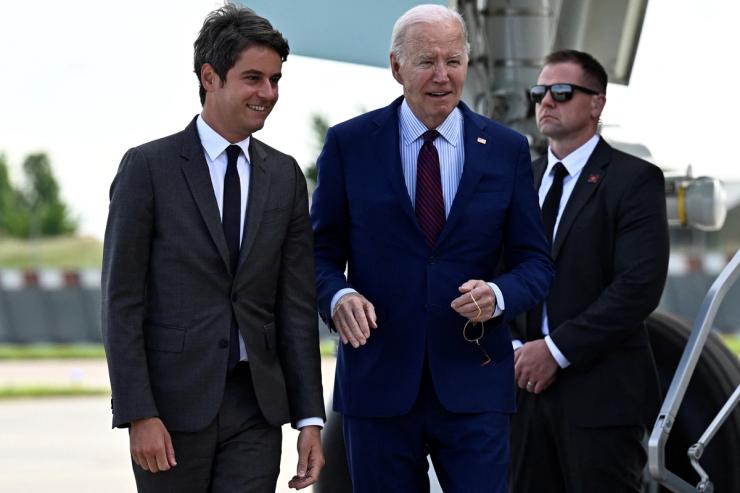The News
US President Joe Biden landed in France on Wednesday for a trip to mark the 80th anniversary of the D-Day landings and strengthen diplomatic alliances.
Biden’s visit will include talks with French President Emmanuel Macron and Ukrainian President Volodymyr Zelenskyy in Paris. He is also due to attend the G7 summit in Italy to showcase Western support of Kyiv in its battle to repel Russia’s invasion.
SIGNALS
Biden’s foreign policy record hinges on close alliances
Biden’s trip to Normandy aims to commemorate D-Day — but marking the anniversary is “as much about the future as the past,” Time magazine noted in a wide-ranging interview with the president. Biden has a storied track record with foreign policy: Under his presidency the US has strengthened ties with several nations, and worked to expand the NATO alliance after Russia’s full-scale invasion of Ukraine in 2022. “Biden’s record in facing these tests is more than just nostalgic talk,” Time’s Massimo Calabresi wrote. “But American Presidents must earn a mandate from their fellow citizens, and it’s far from clear that Biden can.”
Biden will subtly emphasize contrast with Trump
Biden is unlikely to mention his presumptive Republican opponent, former President Donald Trump, during his comments in Normandy, but he won’t have to: The specter of Trump will hang over the speech, The Washington Post noted, as Biden attempts to draw clear lines between their track records. “By simply talking about how these men died trying to destroy authoritarianism, it will be inferred that Trump bungled his visit” five years ago, where he used the setting to attack his political opponents, presidential historian Douglas Brinkley told the Post. Biden “has to stay above the political fray. It would be deeply inappropriate to take a direct swipe at Trump while you’re on the sacred grounds of the cemetery.”
Western leaders meet at time of strategic Ukraine war shift
Biden’s meeting with Macron and Zelenskyy comes as Russia intensifies its advance in eastern Ukraine, with the US appearing to shift its policy in response. Last week it was reported that Washington had agreed to allow Ukraine to use America-supplied weapons for strikes on Russia after months of reluctance. Macron has already emphasized a different position to other NATO countries, saying that sending Western troops to Ukraine should not be ruled out. The three leaders meet at a key juncture, as the tone of the war shifts, and the risk of a Russian victory without Western support grows, Le Monde noted.



